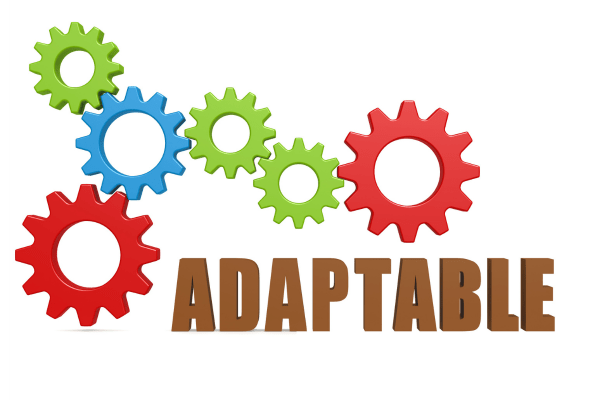You can sign up to our LinkedIn newsletter here.
Within the AQai model of adaptability, Environment is a critical dimension reflecting the impact of company, team and the experience of individuals at work.
Individuals
As far as Environment scores are concerned, there are multiple levels at which I will engage when the scores become apparent. One is with individuals, where the insights that the Environment scores give them enable them to renegotiate their relationship with their Environment. So, an individual with high Work Stress can find tactics and strategies to change the level of stress. Individuals where there is poor Company Support, can seek to engage with managers and leaders to shift the culture or renegotiate how they experience Company Support.
Ultimately, for individuals in a corporate setting their ability to renegotiate their Environment and to change their Environment scores, is limited. The people who most effectively change the Environment for individuals are managers and leaders. Often senior leaders have a very different perception of Environment than those people who directly report them or those on the front line delivering on behalf of the organisation.
Leadership
I was involved with a recent client where, although the senior executive team had very good Environment scores, the next level of management down were struggling in some areas and the level below them, who were working directly with those who were delivering the service, had much poorer Environment scores. This reflected the fact that they had an organisation which, in delivery terms, was very risk adverse, they had a lot of regulatory compliance they needed to maintain, but the leadership were very entrepreneurial and innovative and wanted to create ongoing change to move things forward.
There was huge tension between the cultural experience at leadership level and the cultural experience at the front line. We agreed a set of interventions that over time could shift the organisation so that people nearer the front line had the support that they needed to experience much better Environment scores but it would require a significant set of interventions that would challenge the way they were operating.
Team
The other thing around the Environment is to use the Environment scores to identify whether there are managers or leaders who are undermining the culture in the teams they are responsible for. In larger organisations, different teams will have different experiences of what’s happening through their leaders and managers. It may reflect the responsibilities they hold but it can often reflect the culture that those leaders and managers are propagating through the team. When I start to see wide ranging differences, particularly around things like Company Support, Work Stress and Team Support, then I would ask myself whether there is something going on with the individuals in positions of responsibility. You can then refine insights through a confidential 360 degree feedback process for targeted individuals examining the experiences of their teams, peers and those to whom they are accountable.
On the other hand, if there is a transition going on or something happening in the external environment, this could be the cause of poor Environment scores. Now more support for those individuals may be relevant. Alternatively, it may be that some individuals are failing to adapt to the new challenges and they need to be enabled to move on.
Conclusion
Ultimately, the Environment scores in the AQai model show the health of the culture of the organisation and low Environment scores will limit the ability of that organisation to adapt and change in the face of the challenges of a rapidly evolving world.
However you respond to those lower scores, they reflect individual psychological safety, team culture and ultimately the culture of the organisation as a whole. If you do not support managers to manage effectively and leaders to lead effectively, then you will be unable to implement your aspirations for a great culture from top to bottom in an organisation.

Charles McLachlan is the founder of FuturePerfect and on a mission to transform the future of work and business. The Portfolio Executive programme is a new initiative to help executives build a sustainable and impactful second-half-career. Creating an alternative future takes imagination, design, organisation and many other thinking skills. Charles is happy to lend them to you.
